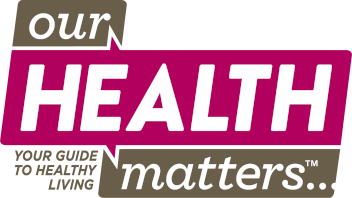You might have heard the term “precision medicine” and wondered what it means. Precision medicine looks at and addresses unique disease risks and helps your medical provider prescribe the appropriate and best treatment.
In healthcare systems, this is also called personalized medicine, which is an approach for protecting health and treating disease that considers your genes, behaviors, and environment.
Treatments are tailored for you, rather than using a one-size-fits-all approach in which everyone receives the same care. But what does this mean and how can precision medicine protect your health?
PRECISION MEDICINE FOR PREVENTION
Here are some of the ways in which precision medicine works:
- Using Family Health History: If you have a family health history of certain diseases, you are more likely to get that disease than someone without that family history. Knowing about your family health history can help you and your doctor take steps to prevent disease, or find it early. In some cases, your doctor might recommend genetic counseling to help you decide whether to have genetic testing for a disease that runs in your family.
- Screening for Diseases BEFORE You Get Sick: Currently, all newborns in the United States are screened for certain medical conditions at birth (i.e., hypothyrodism which underactivity of the thyroid gland, or Sickle Cell disease), as part of newborn screening. Screening helps doctors find and treat babies early, often before they get sick. Babies with certain newborn screening conditions need specific treatments, which can include following a special diet or taking medications.
- Tailoring Prevention: Most common diseases like cancer and heart disease are due to a combination of lifestyle and genetic factors. However, some people have inherited conditions that make them more likely to get a disease—these people could benefit from targeted interventions. For example, people with Lynch Syndrome are more likely to get colorectal (colon) cancer and people with familial hypercholesterolemia are more likely to develop heart disease at a younger age and die from the disease. Prevention steps can include screening earlier or more often, taking medications, or surgery.
PRECISION MEDICINE FOR TREATMENT
A precision medicine approach can improve your treatment and helps public health organizations track disease better:
- Tailoring Treatments: Certain treatments may work on you and not on others. For example, Ivacaftor, a drug used to treat cystic fibrosis, only works on patients whose cystic fibrosis is due to certain genetic changes. Also, some people have gene variations that make them more likely to suffer from rare side effects. Getting checked for gene variations before you take a medication can help you avoid a harmful effect.
- Finding and Tracking Infectious Diseases: Looking at the DNA of germs can help track disease outbreaks when they occur. Doctors and public health officials can more easily find out which people’s illnesses are caused by the germ. Knowing exactly which germ is making a patient sick can help doctors determine the treatment that will work best. Research on precision medicine will look at how this approach can improve disease prevention and treatment.
- All of Us: The All of Us research program, led by the National Institutes of Health, plans to enroll one million or more US participants, who will be followed for several years. Participants will submit information about their medical history and lifestyle. They may also have certain physical measurements taken (for example, height, weight, and blood pressure) and provide urine or blood samples. All of Us will use this information to look at how genetic, behavioral, and environmental factors can affect health, including likelihood of getting certain diseases and effectiveness of prevention and treatments.
On your next visit, you might ask your doctor how precision medicine can benefit you.
Source: Center for Disease Control, cdc.gov
All of Us Research Program, allofus.nih.gov





